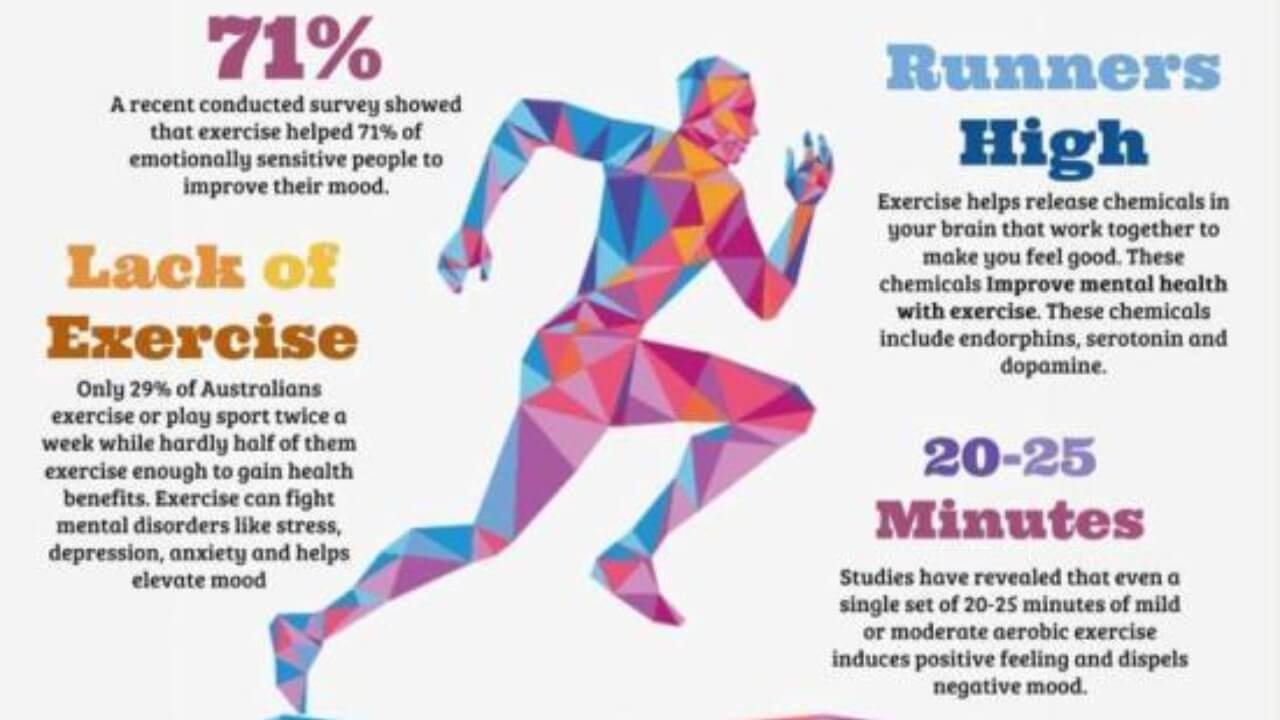

Regular exercise has the following mental health benefits:
Reducing stress and anxiety: Exercise can help to reduce stress and anxiety symptoms by producing endorphins, which are substances in the brain that serve as natural painkillers and mood lifters.
Improving mood: Regular exercise can assist to enhance mood by boosting serotonin levels, a neurotransmitter that governs mood and social behavior.
Boosting self-esteem: Exercise may boost self-esteem by increasing physical attractiveness and fitness levels.
Exercise has been demonstrated to alleviate depression symptoms by boosting the production of endorphins and other neurotransmitters that govern mood.
Improving cognitive function: Regular exercise has been demonstrated to increase cognitive function, particularly memory and attention.
Improving sleep: Regular exercise can assist to enhance sleep by boosting relaxation and decreasing worry and tension.
Improving self-esteem and body image: Exercise can assist to increase self-esteem and body image by enhancing emotions of self-worth and physical confidence.
Enhancing overall well-being: Regular physical activity can increase emotions of well-being by decreasing weariness and raising energy levels.
Improving social relationships: Exercise may be a terrific way to meet new people and enhance social ties. Joining a group class or fitness club may give a sense of camaraderie and social support.
Exercise has been shown to assist people to cope with trauma and post-traumatic stress disorder (PTSD).
It is crucial to highlight that the effects of exercise on mental health vary depending on the individual, and it should not be used in place of professional aid when necessary. It can, however, be an essential part of a complete therapy strategy for mental health disorders. Before beginning any new fitness plan, speak with a mental health professional and a doctor.
Furthermore, physical exercise can help to boost the manufacture of endorphins, which are brain chemicals that function as natural pain relievers and mood enhancers. For the greatest advantages, regular moderate-intensity and pleasant physical activity are recommended.
Overall, frequent exercise is essential for sustaining excellent physical and mental health. It can help to reduce stress and anxiety symptoms, enhance mood, raise self-esteem, lessen depression symptoms, improve cognitive performance, and improve sleep.
Also Read: How Does Physical Activity Benefit Your Mental Health?
In today's article, we will learn the importance of happiness and how to maintain it…
Today, we will look at three common mistakes couples make in their relationships regarding intimacy…
In this article, we will learn about the simple ways that can help one overcome…
Check out the list of couples' biggest relationship mistakes in this article.
In this article, we will learn about anxiety and how one can handle it in…
In this article, you will understand the horrifying effects of child abuse.